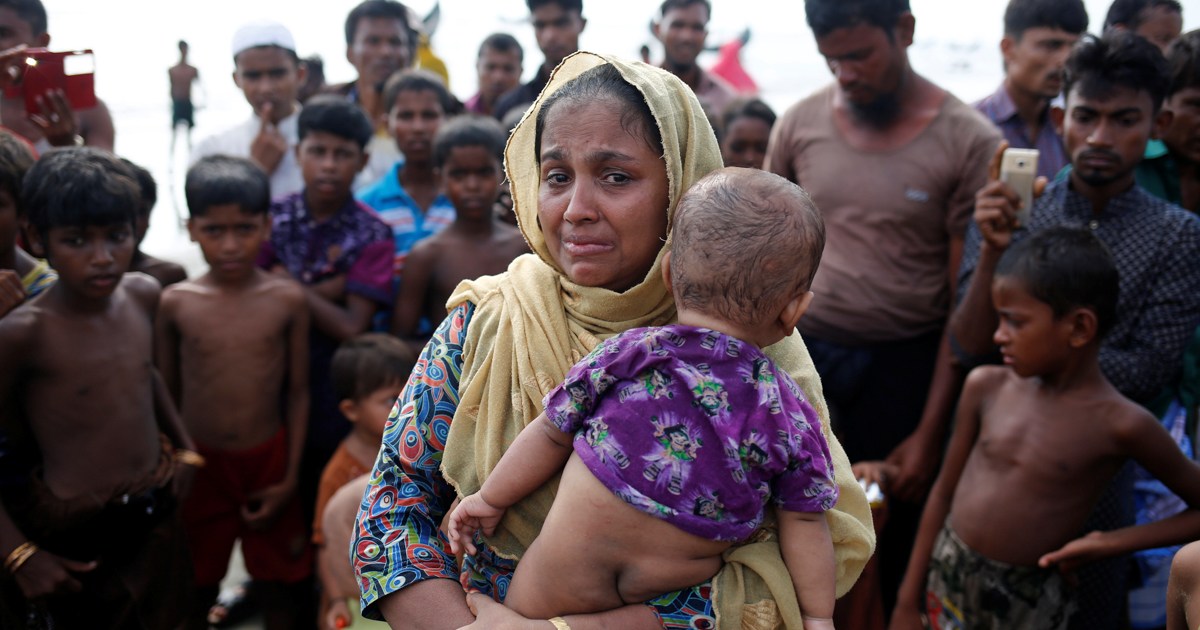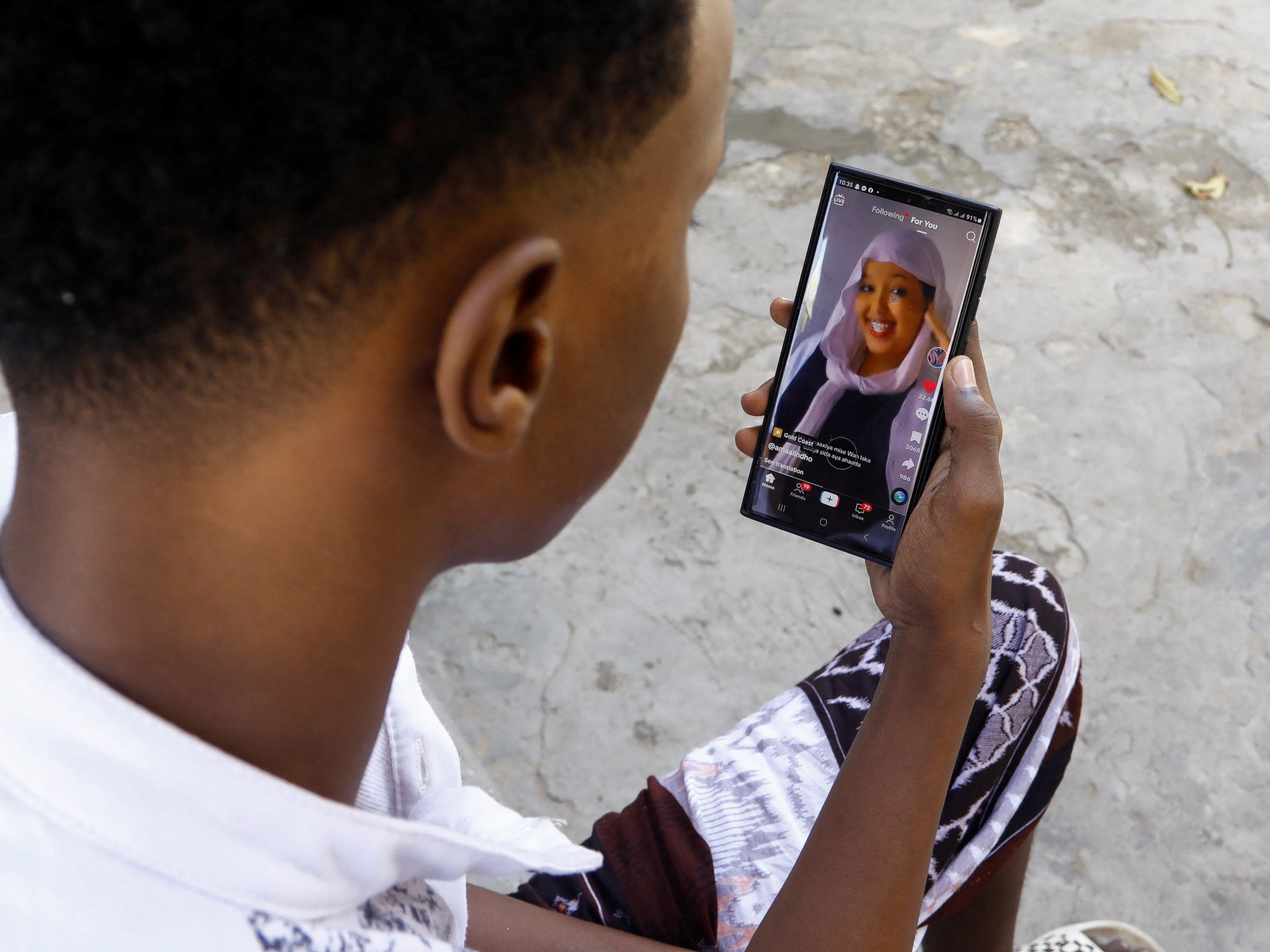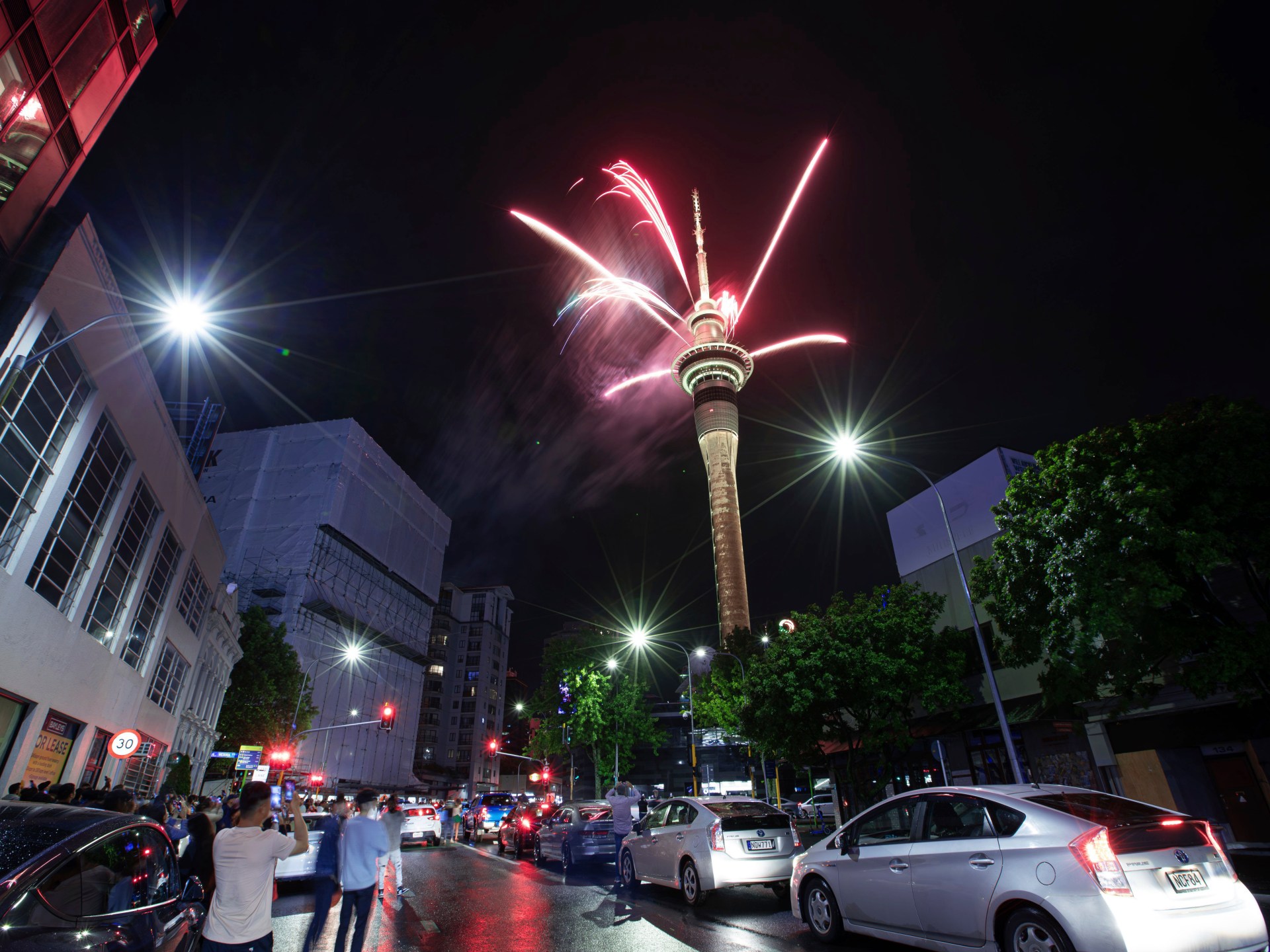Rohingya refugees brought ashore after dramatic Indonesia rescue | Rohingya News
Medan, Indonesia – A standoff involving a boat carrying Rohingya refugees and the Indonesian navy has ended with a dramatic rescue that took 18 hours to complete due to heavy rains and high seas.
The refugees – mostly women and children – were brought ashore at Lhokseumawe in Indonesia’s northwestern province of Aceh in the early hours of Friday. They were immediately screened by health department officials as part of the country’s protocol against COVID-19.
“We are very relieved and extremely grateful to the Indonesian government for granting the Rohingya permission to disembark in Aceh on humanitarian grounds,” Lilianne Fan, the co-founder of Geutanyoe Foundation, a non-governmental organisation (NGO) that supports refugees in Indonesia and Malaysia.
“Indonesia once again has shown great humanity towards the refugees and this principled response must be not only commended but adequately supported,” she told Al Jazeera.
In a statement to Al Jazeera, the United Nations High Commissioner for Refugees (UNHCR) also said it applauds the decision of the Indonesian government.
“We are grateful that Indonesia and its people have once again proven their humanitarian spirit and shown that saving lives must always be the top priority. It is a humanitarian imperative to facilitate the immediate disembarkation of vessels in distress and to prevent the loss of life,” said Ann Maymann, UNHCR Representative in Indonesia.
The rescue ends days of talks after the stricken wooden vessel, carrying more than 100 Rohingya refugees, was first spotted by fishermen bobbing in waters off the coast of Aceh on Sunday.
On Tuesday, Indonesian authorities had initially rejected the refugee boat, which had a broken engine and was taking on water. Photographs circulating on social media had shown the Indonesian navy preparing food, water and petrol for the refugees before an apparent plan to push them back into Malaysian waters.
That ignited an outcry with NGOs, including Amnesty International and UNHCR, calling for the refugees to be allowed to land, prompting Indonesia authorities to relent.
“Today, the Indonesian government decided, in the name of humanity, to give refuge to Rohingya refugees currently afloat on a boat near Biereun district, Aceh,” Armed Wijaya, an official at Indonesia’s chief security ministry, said in a statement on Wednesday.
High tides, stormy seas
On Thursday, an Indonesian navy vessel towed the refugee boat to the port of Lhokseumawe, where the refugees were able to disembark. The process was originally meant to take about 12 hours, but high tides and stormy seas with large waves made progress slow.
“There were 105 refugees aboard and several of them will need medical attention in the coming days,” Nasruddin M Is, the humanitarian coordinator of the Geutanyoe Foundation told Al Jazeera.
Nasruddin had been waiting at the docks to help process the refugees.
He said the refugees would now be quarantined for 10 days in line with local coronavirus protocols. He added that there were also plans to vaccinate the refugees as part of an initiative by the International Organization of Migration (IOM).
Fan, the co-founder of Geutanyoe Foundation, told Al Jazeera that pushing the refugees back out to sea would have been a violation of the international principle of non-refoulement.
Non-refoulement is a principle of international law that forbids a country from returning refugees or asylum seekers to a country where they would be in danger of persecution.
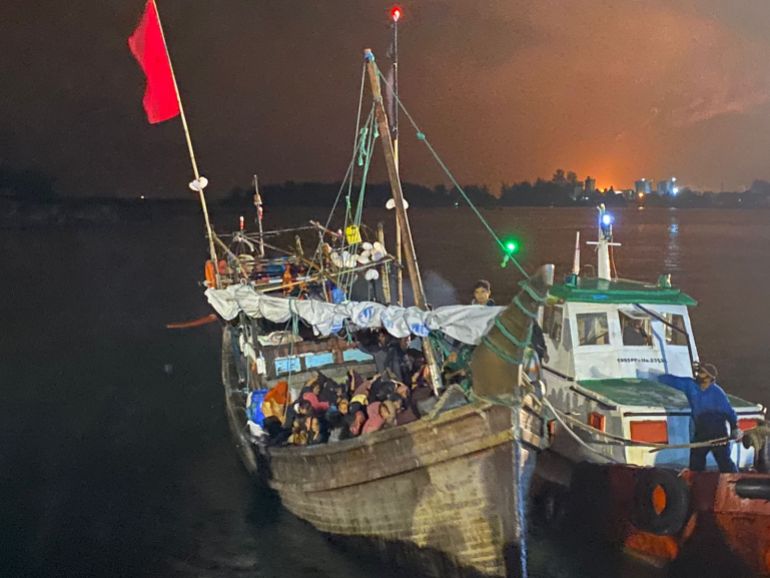 On Tuesday, Indonesian authorities had initially rejected the refugee boat, which had a broken engine and was taking on water [Photo courtesy of Geutanyoe Foundation]
On Tuesday, Indonesian authorities had initially rejected the refugee boat, which had a broken engine and was taking on water [Photo courtesy of Geutanyoe Foundation]‘No safety or freedom in Myanmar’
Gura Amin, a Rohingya refugee based in Medan, the provincial capital of North Sumatra, had arrived in Aceh by boat from Bangladesh in 2019. He told Al Jazeera that he had been extremely worried about the escalating situation.
“When I was on my boat, it was so difficult. The Myanmar government and military have been killing Rohingya for years including women and children. There is no safety or freedom in Myanmar.”
When Gura Amin arrived in Aceh from Cox’s Bazar in Bangladesh, he had been at sea for seven months, having been turned away repeatedly from landing in Malaysia.
Supplies of food and water on his boat had been severely depleted, leading to the deaths of a number of the refugees on board, including children.
Amin was only able to enter Indonesia as his boat was not spotted by authorities until it had landed and the refugees on board had already disembarked on a local beach.
“They will have tried their best to enter Malaysia,” he said of the refugees on the latest boat.
In the past, neighbouring Thailand and Malaysia have not allowed Rohingya refugees to land and have pushed them back out to sea. Indonesia has also repeatedly tried to refuse refugees the right to land before relenting, something that Fan said was also a violation of Indonesian law.
“It goes against Indonesian Presidential Decree 125 of 2016,” she said.
“Indonesia has a legal framework for the disembarkation of refugees and emergency response. It is far from perfect but it is a very important humanitarian law and it should be respected.”
 In the past, Indonesia has also repeatedly tried to refuse refugees the right to land before relenting, something that refugee rights advocates said was a violation of Indonesian and international laws [Photo courtesy of Geutanyoe Foundation]
In the past, Indonesia has also repeatedly tried to refuse refugees the right to land before relenting, something that refugee rights advocates said was a violation of Indonesian and international laws [Photo courtesy of Geutanyoe Foundation]Article 9 of the Indonesian Presidential Decree 125/2016 states that refugees, who are found in an emergency situation at sea, should be given emergency aid and allowed to land on Indonesian soil if they are in danger.
The Rohingya are one of the most persecuted minorities in the world and have faced mass killings in Myanmar for decades, causing thousands to flee to refugee camps in Bangladesh or other countries such as Malaysia, Thailand and Indonesia.
Indonesia is not a signatory of the 1951 Refugee Convention or the ensuing Refugee Protocol of 1967, which means that refugees are not allowed to resettle permanently in the country.
“The authorities always try to push refugees back, except if there is pressure from NGOs, locals or the media,” said Nasier Husein, a documentary filmmaker based in Lhokseumawe in Aceh.
Previously, refugees have been able to land in Aceh following interventions by the residents, including fishers – something that happened again this time.
Following the latest discovery of the boat in waters off the coast of Bireuen, fishers demonstrated on the beach and tried to reason with the local authorities to allow the refugees ashore.
“Following past arrivals of three boats in 2020 and 2021, local refugee task force structures have been established in Aceh, and a temporary reception site/compound remains prepared to receive arrivals through the work of IOM and partners,” stated Louis Hoffmann, IOM’s Chief of Mission in Indonesia said in a statement.
Along with the UNHCR registration process, IOM and partners also provide the refugees with shelter, bedding, food and psycho-social support, Hoffmann said.
The latest refugees, who have been at sea for more than a month, will be temporarily housed in Aceh before being brought to the provincial capital, Medan, where other Rohingya refugees are based, including Gura Amin.
“I am grateful to the Indonesian government [for allowing them to land],” he said.
“That will have saved their lives.”
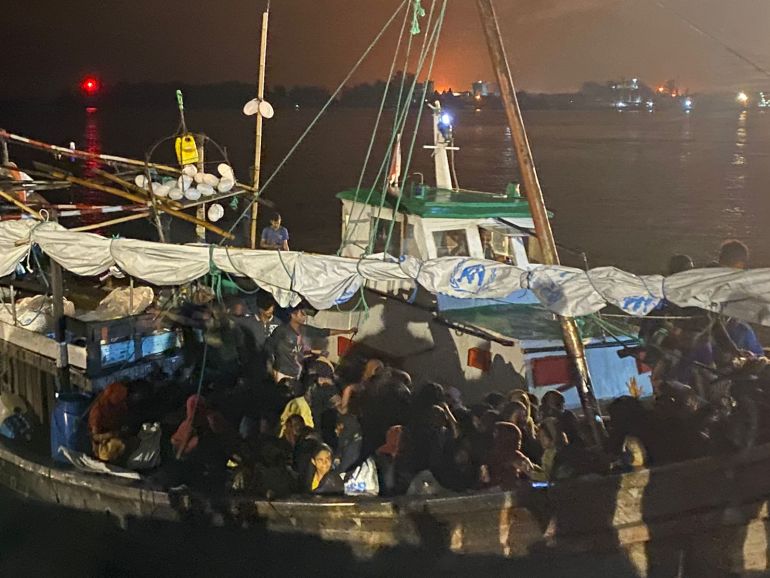 Indonesia is not a signatory of the 1951 Refugee Convention or the ensuing Refugee Protocol of 1967, which means that refugees are not allowed to resettle permanently in the country [Photo Courtesy of the Geutanyoe Foundation]
Indonesia is not a signatory of the 1951 Refugee Convention or the ensuing Refugee Protocol of 1967, which means that refugees are not allowed to resettle permanently in the country [Photo Courtesy of the Geutanyoe Foundation]

